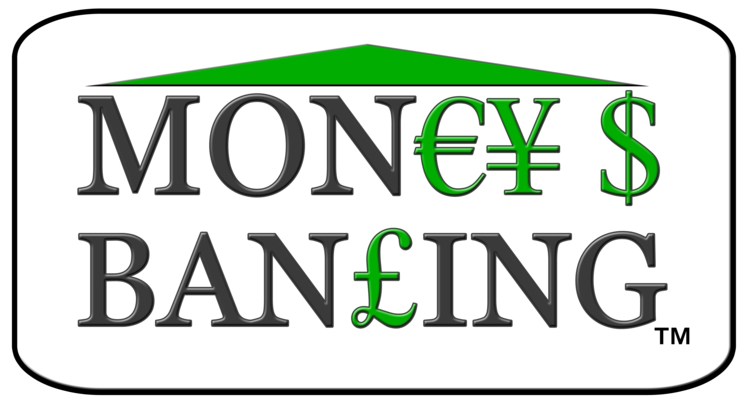Money, Banking, and Financial Markets
The regulatory reforms that followed the financial crisis of 2007-09 created a financial system that is far more resilient than the one in place 15 years ago. Yet, the events of March 2023 make clear that the progress thus far is simply not enough. To ensure resilience, we need to do more.
To steer the process of further reform, we propose a set of 10 precepts that those who make the rules should keep in mind as they refine the prudential framework. These practical guidelines lead us to conclusions that mirror those in a recent post: regulation should be more rule-based (less reliant on supervisory insight or discretion); simpler and more transparent; stricter and more rigorous; and more efficient in its use of resources. Concretely, this approach means increasing capital and liquidity requirements; shifting to mark-to-market accounting; and improving the transparency, flexibility and severity of capital and liquidity stress tests.
We authored this post jointly with our friend and colleague, Lawrence J. White, Robert Kavesh Professor of Economics at the NYU Stern School of Business.
Some government financial institutions strengthen the system; others do not. In the United States, as the lender of last resort (LOLR), the Federal Reserve plays a critical role in stabilizing the financial system. Unfortunately, their LOLR job is made harder by the presence of the Federal Home Loan Bank (FHLB) system—a government-sponsored enterprise (GSE) that acts as a lender of next-to-last resort, keeping failing institutions alive and increasing the ultimate costs of their resolution.
We saw this dangerous pattern clearly over the past year when loans (“advances”) from Federal Home Loan Banks (FHLBs) helped postpone the inevitable regulatory reckoning for Silicon Valley Bank (SVB), Signature Bank, and First Republic Bank (see Cecchetti, Schoenholtz and White, Chapter 9 in Acharya et. al. SVB and Beyond: The Banking Stress of 2023).
From a public policy perspective, FHLB advances have extremely undesirable properties. First, in addition to being overcollateralized, these loans are senior to other claims on the borrowing banks—including those of the Federal Deposit Insurance Corporation (FDIC) and the Federal Reserve: If the borrower defaults, the FHLB lender has a “super-lien.” Second, there is little timely disclosure about the identity of the borrowers or the amount that they borrow. Third, they are willing to provide speedy, low-cost funding to failing institutions—something we assume private lenders would not do.
In this post, we make specific proposals to scale back the FHLB System’s ability to serve as a lender to stressed banks….
Further commentary, click here.
... the site where you can learn about finance and economics. We provide commentary on events in the news and on questions of more lasting interest. Because the financial system is constantly evolving, our analysis is informed by a set of core principles: understand the principles, understand the future. The opening excerpts of our two most recent posts appear above. For prior posts, click on the Commentary link to the left, or on the month-by-month Archives to the right. Alternatively, if you are interested in a specific topic, use the tags.
The site also provides material related to our textbook, Money, Banking and Financial Markets, 6th edition, 2020. The Five Core Principles on which the book is based are highlighted here. In addition, Cecchetti and Schoenholtz 6e systematically integrates the use of economic and financial data from FRED, the online database provided by the Federal Reserve Bank of St. Louis. Click on FRED Lessons on the left to access help on how to use this incredible resource. Steve Cecchetti and Kim SchoenholtzThe work on this site is protected by the Creative Commons Attribution 4.0 International Public License. It may be copied, redistributed, remixed, transformed, or built upon for any purpose, so long as the work is attributed to Cecchetti and Schoenholtz, www.moneyandbanking.com, and any changes are indicated.
Contact: admin@moneyandbanking.com
Top tags (# posts)
Capital controls (12)
Capital requirements (37)
Central bank independence (20)
China (16)
Collateral (19)
Deposit insurance (12)
Derivatives (18)
Dodd-Frank (11)
ECB (18)
FDIC (13)
Federal Reserve (21)
Financial crisis (18)
Financial regulation (14)
Financial stability (29)
FOMC (14)
FSOC (13)
Inflation (21)
Inflation targeting (15)
Lender of last resort (19)
Leverage (30)
Liquidity (13)
Monetary policy (40)
Primer (15)
Quantitative easing (12)
Regulation (17)
Regulatory arbitrage (11)
SRISK (13)
Stress test (24)
Systemic risk (28)
Time consistency (17)
Too big to fail (15)
Transparency (15)
Archives
- September 2023 (1)
- August 2023 (1)
- July 2023 (2)
- May 2023 (1)
- March 2023 (1)
- February 2023 (1)
- December 2022 (2)
- November 2022 (2)
- October 2022 (1)
- August 2022 (3)
- July 2022 (1)
- June 2022 (1)
- May 2022 (2)
- April 2022 (1)
- March 2022 (2)
- February 2022 (2)
- January 2022 (2)
- December 2021 (2)
- November 2021 (2)
- October 2021 (2)
- September 2021 (1)
- August 2021 (1)
- July 2021 (2)
- June 2021 (2)
- May 2021 (3)
- April 2021 (1)
- March 2021 (2)
- February 2021 (2)
- January 2021 (2)
- December 2020 (2)
- November 2020 (2)
- October 2020 (1)
- September 2020 (2)
- August 2020 (4)
- July 2020 (3)
- June 2020 (3)
- May 2020 (5)
- April 2020 (4)
- March 2020 (6)
- February 2020 (3)
- December 2019 (2)
- November 2019 (1)
- October 2019 (2)
- September 2019 (2)
- August 2019 (2)
- July 2019 (2)
- June 2019 (4)
- April 2019 (4)
- March 2019 (2)
- February 2019 (4)
- January 2019 (3)
- December 2018 (2)
- November 2018 (2)
- October 2018 (5)
- September 2018 (4)
- August 2018 (3)
- July 2018 (5)
- June 2018 (4)
- May 2018 (4)
- April 2018 (4)
- March 2018 (4)
- February 2018 (4)
- January 2018 (4)
- December 2017 (3)
- November 2017 (4)
- October 2017 (5)
- September 2017 (4)
- August 2017 (4)
- July 2017 (5)
- June 2017 (4)
- May 2017 (5)
- April 2017 (4)
- March 2017 (4)
- February 2017 (4)
- January 2017 (5)
- December 2016 (4)
- November 2016 (4)
- October 2016 (5)
- September 2016 (4)
- August 2016 (5)
- July 2016 (4)
- June 2016 (4)
- May 2016 (5)
- April 2016 (4)
- March 2016 (4)
- February 2016 (5)
- January 2016 (4)
- December 2015 (4)
- November 2015 (5)
- October 2015 (4)
- September 2015 (4)
- August 2015 (5)
- July 2015 (6)
- June 2015 (6)
- May 2015 (6)
- April 2015 (7)
- March 2015 (8)
- February 2015 (6)
- January 2015 (6)
- December 2014 (5)
- November 2014 (4)
- October 2014 (5)
- September 2014 (7)
- August 2014 (8)
- July 2014 (9)
- June 2014 (9)
- May 2014 (9)
- April 2014 (6)
- March 2014 (5)
- February 2014 (5)
- January 2014 (1)
- Monetary policy
- Federal Reserve
- Financial stability
- Capital requirements
- Inflation
- Systemic risk
- Stress test
- Central bank independence
- FOMC
- Lender of last resort
- Leverage
- Collateral
- Regulation
- COVID-19
- Inflation targeting
- Transparency
- Time consistency
- ECB
- Financial crisis
- ZLB
- Derivatives
- Liquidity
- Resolution
- SRISK
- Primer
- Fiscal policy
- Quantitative easing
- Deposit insurance
- China
- Inflation expectations
- FDIC
- Moral hazard
- FSOC
- Bank capital
- Credibility
- Taylor rule
- Too big to fail
- Volatility
- Financial regulation
- Liquidity requirements
- SEC
- Federal Open Market Committee
- Price stability
- Regulatory arbitrage
- Capital controls
- Effective lower bound
- Summary of Economic Projections
- Central bank
- Basel III
- Dodd-Frank Act




